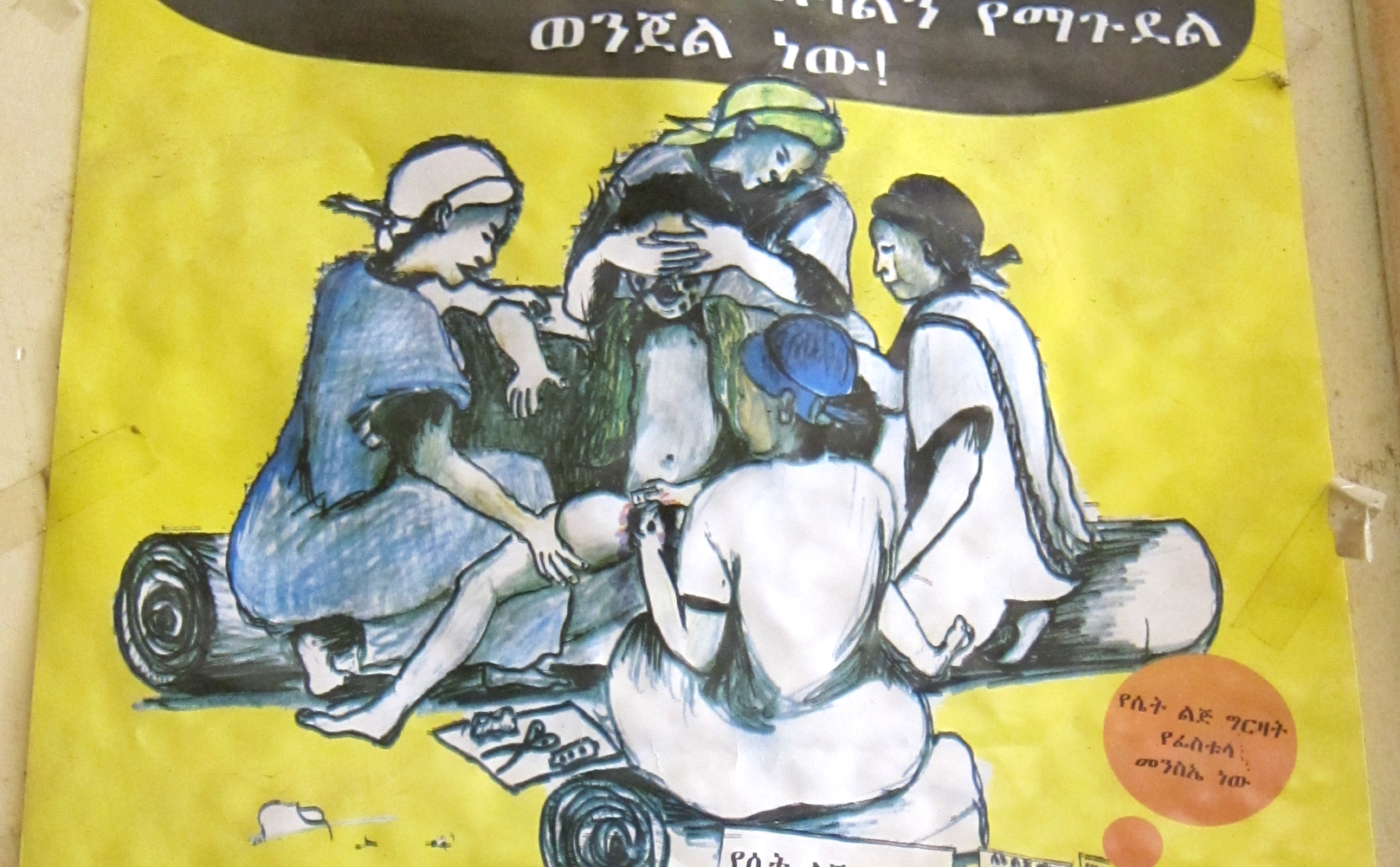[ePrayer – Pray for those who are suffered and threatened by FGM]
Nengai, experienced FGM/C at 9 years of age, was told, ‘You need to be circumcised to be married, so that if you get pregnant you don’t bring shame to your family.’
Agnes, 14 years old, says, ‘They covered my face… grabbed my legs and arms, and then excised me. Blood was coming out.’
Kiouala, 51 years old, recalls, ‘When they finished cutting me and made me stand up, those who went before me were sitting on leaves. I saw blood everywhere. This fear, I still have it inside.’
Female genital mutilation (FGM) refers to all procedures involving partial or total removal of the external female genitalia or other injury to the female genital organs for non-medical reasons.
According to a recent UNICEF publication, at least 125 million girls and women have experienced FGM in 29 countries in Africa and the Middle East where the practice is concentrated. Given present trends, as many as 30 million girls under the age of 15 may still be at risk.
‘There are many traditional harmful practices which are detrimental to the women only. The most inhuman thing is that they have to go through female genital mutilation.’ CEDAR’s programme officer shared after visiting Ethiopia. FGM may cause severe pain and can result in prolonged bleeding, infection and even death. It violates a person’s rights to health, security and physical integrity, the right to be free from torture and cruelty, inhuman or degrading treatment, and the right to life. ‘Statistics show that many girls or women die from FGM. Although this is already banned by the law, it is still commonly practiced in many villages.’
With the effort of fighting against this harmful traditional practice by UN agencies and NGOs, FGM is becoming less prevalent overall and the younger generation is less vulnerable to the practice. According to UNICEF estimates, on average, 36 % of girls aged 15-19 have been cut compared to an estimated 53 % of women aged 45-49. However, there are still 30 million girls at risk who need our prayers, protection and support. [UN, UNICEF, UN Women]
Meditate on Scripture:
‘Is not this the kind of fasting I have chosen: to loose the chains of injustice and untie the cords of the yoke, to set the oppressed free and break every yoke? Is it not to share your food with the hungry and to provide the poor wanderer with shelter— when you see the naked, to clothe them, and not to turn away from your own flesh and blood?’ Isaiah 58: 6-7
Oh Lord, we heard the voice, read the word and saw the video of the girls and women who have been suffered from FGM. They were created by God in Your image, just like us. However, their value and dignity of life is destroyed by the inhuman culture and traditional practice. Oh Lord, please let us know how we can stand by them to fight against FGM and gender discriminations in their culture and society.
Pray for those who are suffered and threatened by FGM:
- Pray that FGM will be ended very soon;
- Pray that God will protect and rescue those girls who are still threatened by FGM;
- Pray that God will change the culture and value of those FGM prevailing nations and communities, let them recognise the value and dignity of female placed by God;
- Pray for God’s mercy and healing to those women who are still suffered from the sequela of FGM.














